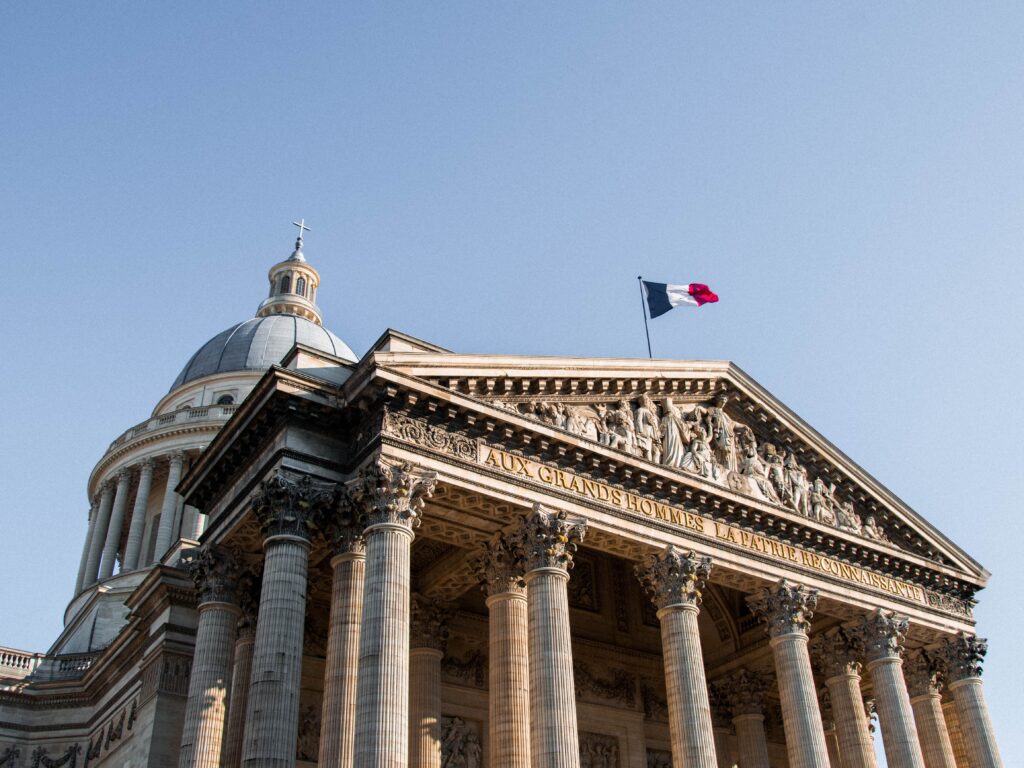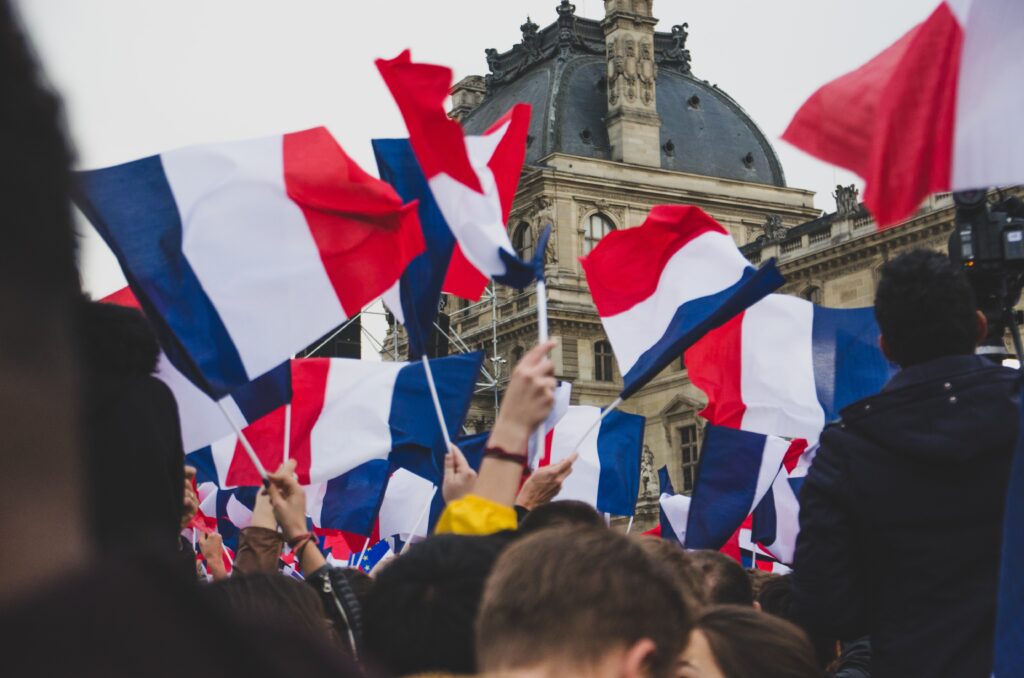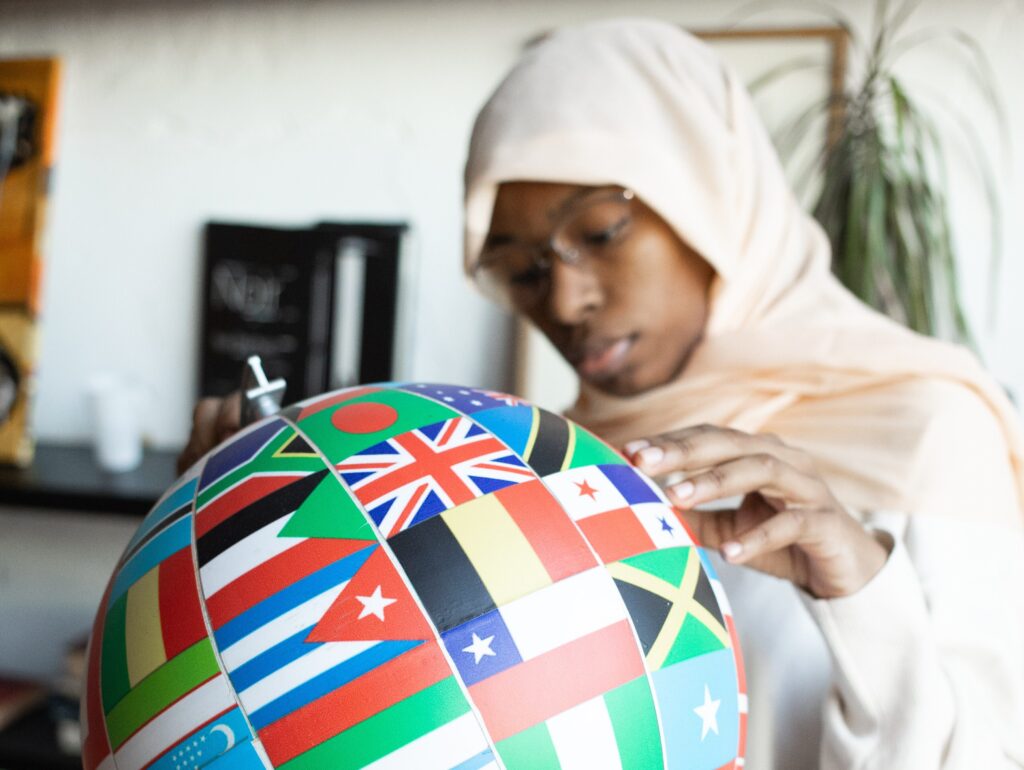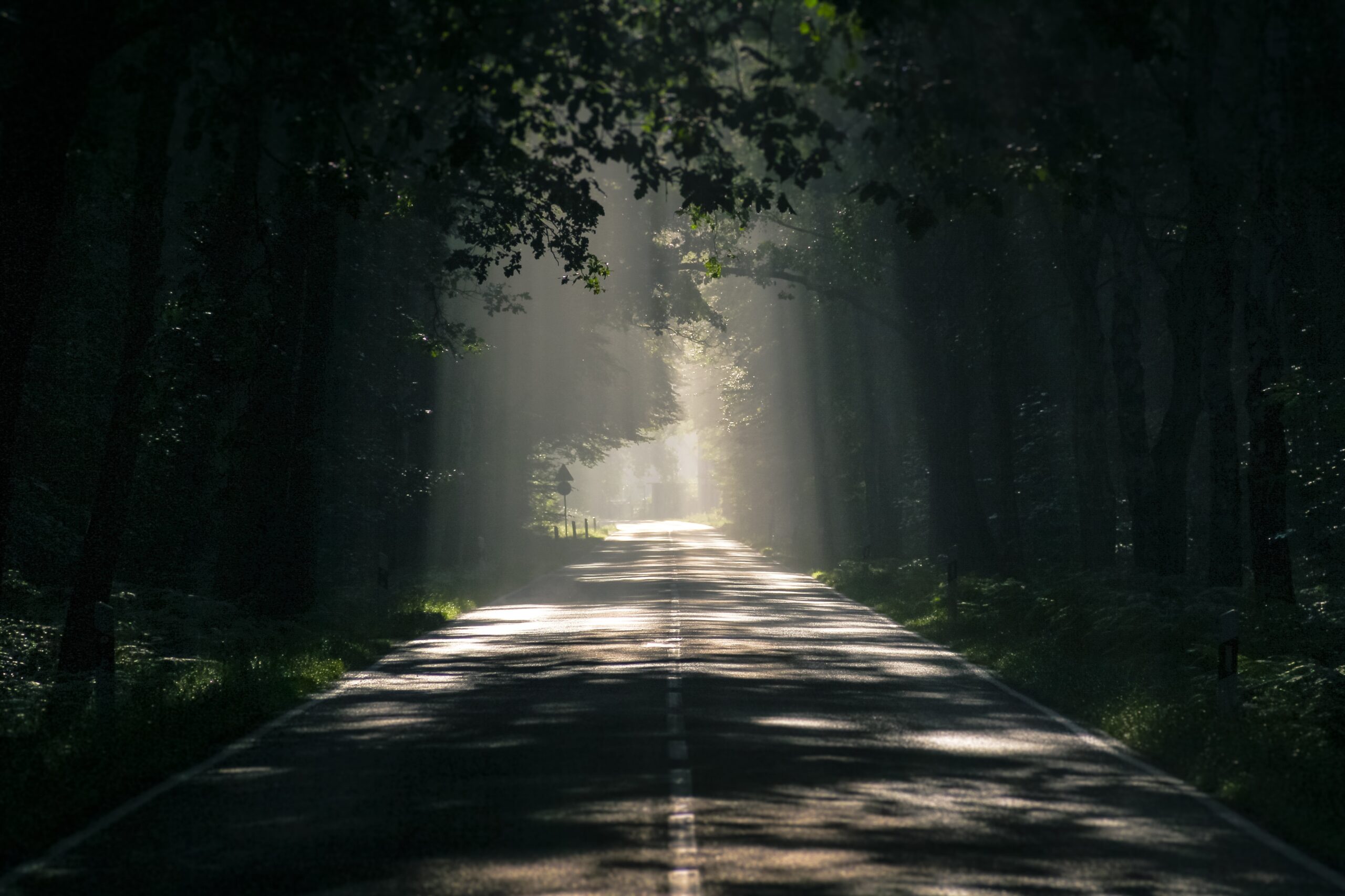
Laïcité, Islam and the future of France
Do French claims about religious neutrality stand up to scrutiny? asks Maddy Fry.
The brilliant Netflix comedy-drama ‘Au Service de la France’, which follows the antics of a naïve young recruit to the French Secret Service, contains a running joke which aptly sums up the tensions between France’s different religious and ethnic groups.
Despite it being the 1960s, with calls for independence coming from France’s colonies and the war with Algeria still an open wound, the Service does not budge on the issue of Algerian separatism. In the face of all evidence to the contrary, ‘Algeria is France’ is repeated so often that it starts to lose all meaning. Some might say the same about that uniquely French term, laïcité.
This word, which has its equivalent in other Romance languages, has all the same a particularly French flavour. It is like secularity but more subtle, and reflects the often troubled relationship between political and religious power in France over the centuries. It forbids religious interference in state policies and government interference in the religious sphere. At least, that’s the theory.
Although it was only formalised in 1905, much like in the USA, the separation between church and state in France is a brainchild of the revolutions of the 18th century. The roots of it are understandable given the context; the Roman Catholic Church was associated with the aristocracy, elitism and corruption, and the new world the uprisings sought to bring about promised to usher in a form of government that was free from the inequalities of previous generations.
However, these days debates over the relevance of laïcité have developed an extra dimension. Within the larger discussion as to what role religion should play in public life, the idea of laïcité has become a by-word for how French people relate to Islam and Muslims.
The concerns over forms of extremism at work in Muslim communities, highlighted by the massacres of journalists working at the magazine Charlie Hebdo and the murder of school teacher Samuel Paty, have often been talked about in the context of colonialism – particularly France’s past incursions into Africa and the unresolved horrors of the war in Algeria.
One of the criticisms levied at laïcité is that it ignores recent history. The French state may no longer brazenly claim that Algeria is part of France, but the descendants of those who lived during the Algerian war of independence have voiced resentment at being told they cannot put their Muslim identity first if they wish to reside in France. It’s a hard call as to whether the turmoil embroiling critics and defenders of laïcité is due to a clash between Muslim immigrants and France’s secular or Christian populations, or to the scars left by imperialism.
Some measures do seem to arise from this clash. The ban on Muslim girls being able to wear headscarves in schools, as well as the refusal to provide halal meals, has become a sore point, particularly as Roman Catholics in France are not fully subject to the same pressures. Although Mass attendance in France has been declining, many French holidays are still based on saints’ days, fish is served on Fridays in numerous school canteens, and most shops and businesses close on Sundays.

The less uncomfortable co-existence between Catholicism and the French state is perhaps unsurprising given that the two sides have had more time to work out their differences. The Church in its current form is certainly not perceived as a threat to the French state in the way radical Islam tends to be.
But there is a danger that forcing one religion out of public life while another continues to have at least a cultural presence can make people feel their identity is being eroded, reinforcing a sense of not being heard – which can make some turn to noxious and extreme ideologies that claim to represent their grievances.
Many French people are believers, which begs the question of what can be gained by shutting them out. Efforts not to exclude them from state life might make many feel less marginalised, eroding the separatisme that French President Emmanuel Macron has claimed French Muslims are practising.
The very notion of laïcité subtly suggests that religions have a monopoly on repression and violence.
Yet ignoring the Jacobin inspired blood-letting that ushered in ‘liberté, égalité, fraternité’ would be to present a very one-sided picture of how the various revolutions built modern France. It would be a mistake to confuse secularism with peacefulness or bland neutrality, and some humility over this on the part of those who defend laïcité would be no bad thing.
One also doesn’t have to look much beyond France for examples of how formal partitions can, in the long-run, be ineffective for keeping religion out of the workings of the state – particularly when officially secular countries like the USA are unlikely to elect an atheist leader, while an officially religious country like the UK winces at open displays of belief from those in power. It is hard to forget the reputed diktat from Alastair Campbell, the spin doctor of former British Prime Minister Tony Blair – “we don’t do God” – which was widely seen as an attempt to rein in Blair’s openness about his conversion to Catholicism.
Yet all the above perhaps risks misunderstanding French discourse around the role of the state. Invoking the word laïcité serves as a justification for strictures on public expressions of faith that many French people immediately understand, in a way that just using the word ‘secularism’ by itself would not.
Unlike in the USA, which places more emphasis on individual rights (even if, as in France, religious schools cannot receive state funding), one of the duties of the French state seems to be to embody and enforce the partition between religion and politics – an edict that is seen as more important than an individual’s right to wear a skullcap, a crucifix or a head scarf, items that have been banned in schools since 2004.
Every French citizen inherits this tradition, handed down by the ideals of the 18th century, acting as what some would see as a vital national adhesive which requires people to put their duty to the Republic first, ahead of any faith commitment or adherence to a racial, sexual or gender identity.

As the cultural historian Andrew Hussey put it,“The French have a great horror of identity politics.
It’s more important to be a citizen in France than it is to be whatever you are in terms of religious faith or sexuality. That’s where the collision occurs with Islam.”
However, he also pointed out that, “the government has to walk a very careful line. In the universities there is a growing awareness of Anglo-American politics of identity, but leading historians and intellectuals have argued explicitly against the import of those politics of identity because it would subvert republicanism and open the way to political and cultural anarchy.”
This perhaps isn’t so alien or undesirable to many in Britain, as evidenced by the government’s attempt to ensure that ‘tolerance, the rule of law, democracy and liberty’ are taught in schools.
The difference in France is that laïcité transcends any one political party, whereas the notion of ‘British values’ has become strongly associated with the Conservative party and even those of the extreme right.
Islam has a global reach far greater than the Church of England, but also creates a sense of identity which even the international Catholic Church seems unable to match.
Religions that have a transnational identity can often make states feel uneasy, creating the impression, fairly or not, that their communities have divided loyalties. (China’s relationship with the Muslim-majority Uyghurs is a sinister example of where this can lead). Religion can be seen as akin to the imposition of a foreign state – which, when that religion is conflated with violence, as Islam often unfairly is, can be seen as flouting the terms of citizenship.

Supporters of laïcité often point to the treatment of women or homosexuals in some Islamic states and say it is better that such a culture be left at the door if people want to be French.
Ardent secularists and liberal religious believers, in Britain as well as in France, have felt uneasy about some faith groups insisting that their children can’t be taught about homosexuality or that their faith can never be ridiculed or questioned. This was epitomised by the backlash from parents at a Birmingham primary school in 2019 when it tried to include teaching materials about LGBTQ+ relationships.
Charlie Hebdo, which was targeted numerous times after publishing satirical cartoons of the Prophet Muhammed, was accused of being needlessly provocative, but the incident still stoked anger from those who saw believers as calling the shots on what should or should not be published. The horrific beheading of Samuel Paty in 2020, who had been showing his pupils the same cartoons, reinforced this feeling.
Debates about how women dress in public are a harder circle to square for religious and non-religious moderates.
Women being forced to cover up in Iran or Saudi Arabia can be seen as oppressive, but what role should the state play in a country like France if it is a woman’s personal choice? Is it always possible to tell if it is or isn’t a personal choice? What’s more, can values be imposed on people in such a top-down manner by either church or state?
From this perspective, it’s hard to argue against moderate Muslims who feel like they are being unduly scrutinised, especially by those on the right of the political spectrum in France who see Islam as a unique threat.
As Andrew Hussey notes: “The aggressive secularism of republicanism makes a lot of Muslims feel targeted,” adding that they have few allies among French Christians: “There are Catholics who have contempt for Charlie Hebdo and republican values, but at the same time will say that the ‘pure blood’ of real French people is being contaminated by immigration. Islam and Catholicism might speak to each other, but it’s an entirely negative discourse.”
Emmanuel Macron has made attempts at outreach by acknowledging the negative legacy of imperialism, but his emotional tribute to Samuel Paty, whom he described as ‘the face of the Republic,’ left no-one in doubt about his devotion to laïcité. More compromises might be needed to not make Muslims feel singled out and to bring about the civic unity that might make everyone feel part of the Republic.
The idea that one particular group should not be favoured by any nation-state is laudable – yet France’s claim that it supports ‘no religion’ strains credibility. If, as academic Laura Ashe puts it, ‘laïcité is itself a religion – it claims moral high ground, it acquires devotion, and it has martyrs,’ then is the French state truly secular?
It certainly isn’t neutral; godless faiths are nothing new, and active suspicion of groups whose devotions might lie elsewhere is a far cry from the unbiased detachment cited by Macron and others.
Perhaps the truth is that, compared with the great secular faith in laïcité, all religions are unequal, but some, like Islam, are more unequal than others. What it means to keep the state space free from religion might have to evolve – especially if for some, that religion is laïcité.
Like what you’ve read? Consider supporting the work of Adamah by making a donation and help us keep exploring life’s big (and not so big) issues!

2 Comments
Rachel McCabe
What a fascinating article! It is so easy for us left-leaning liberals to see France as a beacon of impartiality in the debate about Religion and State. Maddy’s writing shows us a different side to the rationality of atheism. I really enjoyed reading this: it’s Easter Saturday and I am sitting here, with a glass of wine, thinking how fabulous it is to have escaped the chains of the religion I was brought up in and not have to go to Church tomorrow. Then I read this and wonder how free I really am?
Truly thought-provoking stuff. Thank-you.
Francis Grimer
An interesting read. Clearly the idea of neutrality is a fools belief. Can we ever to truly neutral? Is this even desirable? I think I tend to agree with the thrust of the article, just not for the reasons stated.